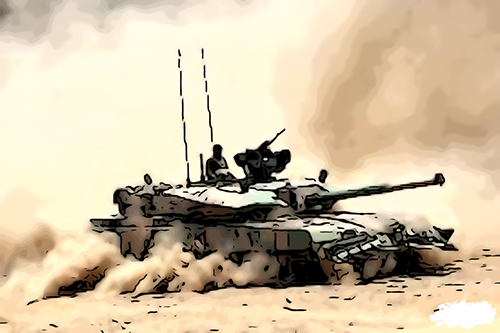




Be convinced that to be happy means to be free and that to be free means to be brave. Therefore do not take lightly the perils of war.
Thucydides
Military Briefings: Exploring History and Strategy
The famous line, "I love the smell of Napalm in the morning," delivered by Lieutenant Colonel Bill Kilgore in the movie Apocalypse Now, encapsulates a sentiment shared by some soldiers throughout history: a fascination with the destructive power of conflict. While this perspective is not universal among soldiers, many are forever haunted by the unimaginable horrors they have witnessed.
Undeniably, many civilizations' origins can be traced back to war, often through revolutionary conflicts. These revolutions have grown progressively more deadly as humanity has harnessed technology to create increasingly powerful weapons.
From early antiquity to the modern battlefield, the topic of war may seem vastly different in terms of the scale of data, duration of conflicts, and the toll on human life, but the underlying fundamentals have remained constant. In the Information Technology industry, we frequently discuss the three pillars of a successful organization: People, Processes, and Technology. Using this framework, I aim to delve into the foundational aspects of war.
The first facet of this triangle encompasses leadership, politicians, and the individual soldiers who confront each other on the battlefield. Civic and military leaders and those we consider heroes inspire us and often motivate us to improve our lives through their examples.
The second dimension is where the processes of war come into play, including strategy, tactics, and diplomacy. While the methods of measuring success may evolve from one generation to the next, the underlying principles remain timeless. These principles can be traced back through centuries in the writings of the seven military classics, which include Sun Tzu's "The Art of War," Caesar's accounts, and Clausewitz's "On War."
Throughout history, humanity's pursuit of technology has continually expanded our horizons. Military Briefings dives into this evolution, exploring how advancements have reshaped warfare, from ancient tactics to modern strategies. These developments, analyzed with cutting-edge tools like Artificial Intelligence and Data Mining, bring new understanding to military briefings and their applications, helping to interpret the lessons of past conflicts.
As knowledge has expanded, the volume of written data has grown exponentially. The maturation of fields like Artificial Intelligence, Machine Learning, and Data Mining allows us to analyze centuries of warfare on a scale and at a speed never before possible. Many of these analytical techniques were not available even 20 years ago, and, likely, we've only scratched the surface. Military Briefings intends to combine and apply these technical analysis approaches where feasible. The content of my writings will contribute to our collective knowledge, and perhaps one day help fulfill Sun Tzu's goal: to resolve all conflicts through diplomacy and prevent them from escalating to the battlefield.












